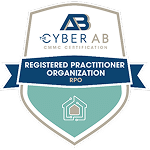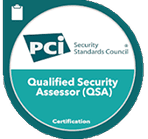A cybersecurity program that’s strong is good, but one that’s ISO 27001 certified is best-in-class. Why? Earning certification means the systems that protect your company’s sensitive data have passed rigorous and specific testing against cyber attacks and other vulnerabilities that could lead to a breach.
ISO 27001 is an international standard designed for information security management systems (ISMS) — a set of procedures and policies put in place for managing and protecting your organization’s data. An ISMS applies risk-management procedures to people, processes, and IT systems, and becoming ISO certified means those protocols are based on the world’s most widely accepted and broadly used security standards.
And, if your organization doesn’t currently have an ISMS, working through the ISO 27001 certification will not only establish one for you but offer continuous improvement suggestions.
Becoming certified consists of a six-part planning process:
- Defining a security policy.
- Defining the scope of the ISMS.
- Conducting a risk assessment.
- Managing identified risks.
- Selecting controls and objectives.
- Preparing a statement of applicability.
With the right preparation, small to mid-sized businesses can achieve certification in one year or less.
Who should become ISO 27001 certified?
For any company that deals with sensitive information, becoming ISO 27001 certified helps bring disparate security controls together under one, streamlined system that’s cost-effective and built to the highest of standards. It also shows your clients that you’re taking a proactive approach to cybersecurity and data protection — something that can help you stand out from competitors.
Integrating your compliance needs into one strategy can save your business time and money. Download our free guide to find out how.
How does an ISO 27001 audit work?
Because each organization is unique, the ISO 27001 team will create a plan that includes only controls relevant to the operation. The first stage of this process is also called a documentation review or pre-assessment. It’s a high-level review of the current ISMS to see if it’s ready for an audit. It’s completed on-site by an independent audit team and outlines both the areas that have already met the minimum requirements for the ISO 27001 standard and those that could use improvement.
The second stage is the audit, when auditors conduct an in-depth assessment to determine the organization’s level of compliance with the standard. They look for evidence of the company’s current policies and procedures and provide feedback on how any nonconformities can be improved in order to gain compliance.
Once the organization’s entire ISMS is compliant with the standard, a report will be issued that confirms ISO 27001 certification.
How can ISO 27001 strengthen your cybersecurity strategy?
Achieving ISO 27001 certification can help shore up your organization’s cybersecurity plan in several ways. If you have a number of disjointed security policies and procedures that were implemented for specific issues, creating an ISMS can streamline them in order to create efficiencies and close gaps.
And, because certification must be renewed every three years (check your ISO certificate for its expiration date), it means that your ISMS will always be operating under security controls that are in line with ever-changing vulnerabilities, threats, and circumstances. Periodic risk assessments and penetration testing will outline areas that may have become outdated and ensure that your data is always protected.








